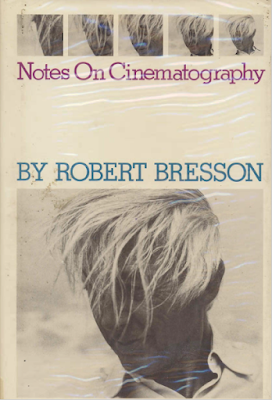"Robert Bresson", James Quandt

Edited by James Quandt (senior programmer at Toronto International Film Festival Cinematheque), Robert Bresson gathers academic essays, interviews and opinions from worldwide filmmakers (such as Scorsese or Michael Haneke) about one of the most acclaimed and influential film directors in history. The adaptation of Journal d'un curé de campagne discussed by André Bazin, the spirituality of his body of work seen by Susan Sontag, the impressive use of sound in Mouchette (1967) studied by Lindley Hanlon, an interview conducted by Godard that reveals much of Bresson’s aesthetic intentions, among many other relevant texts, all this makes this book the most important on the French filmmaker. Excerpts: "Bresson's aesthetic is, therefore, based essentially on the linguistic system called asyndeton, which consists of eliminating the links between terms or groups of terms that are closely related. More precisely, understatement, ellipsis, and metonymy are the figu...


